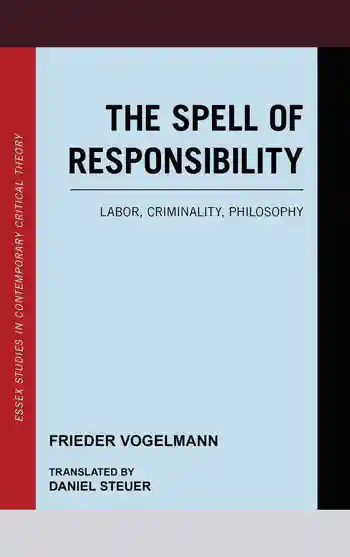
The Spell of Responsibility. Labor, Criminality, Philosophy (translation of Im Bann der Verantwortung)
London: Rowman & Littlefield International, 2017. 2017Abstract
Most people would agree that we should behave and act in a responsible way. Yet only 200 years ago, ‘responsibility’ was only of marginal importance in discussions of law and legal practice, and it had little ethical significance. What is the significance of the fact that ‘responsibility’ now plays such a central role in, for example, work, the welfare state, or the criminal justice system? What happens when individuals are generally expected to think of themselves as ‘responsible’ agents? And what are the consequences of the fact that the philosophical analysis of ‘responsibility’ focuses almost exclusively on conditions of agency that are mostly absent from real life?
In this book, I demonstrate how large parts of philosophy have fallen under responsibility’s spell, and use a Foucauldian approach in an attempt to break it. The three axes of power, knowledge, and self are used in a detailed analysis of the practical regimes of labour (including the welfare state), criminality (including policing, punishment practices, and criminal proceedings), and philosophy, and of the two subject positions required by ‘responsibility’ – those of the attributors and bearers of responsibility – within them. The power relations between these positions, carefully excavated from the grounds of our practices, reveal that the deck is stacked unevenly from the start.
This is a significantly shortend and revised translation of Im Bann der Verantwortung by Daniel Steuer.
Reviews of the German book
Kerstin Jergus: Rezension von Frieder Vogelmann: Im Bann der Verantwortung in Erziehungswissenschaftliche Revue 15.3 (2016).
Nele Kuhlmann: A Concept and Its Practices. A New Perspective on the Concept Responsibility. In: Contributions to the History of Concepts 11.1 (2016), 114–119.